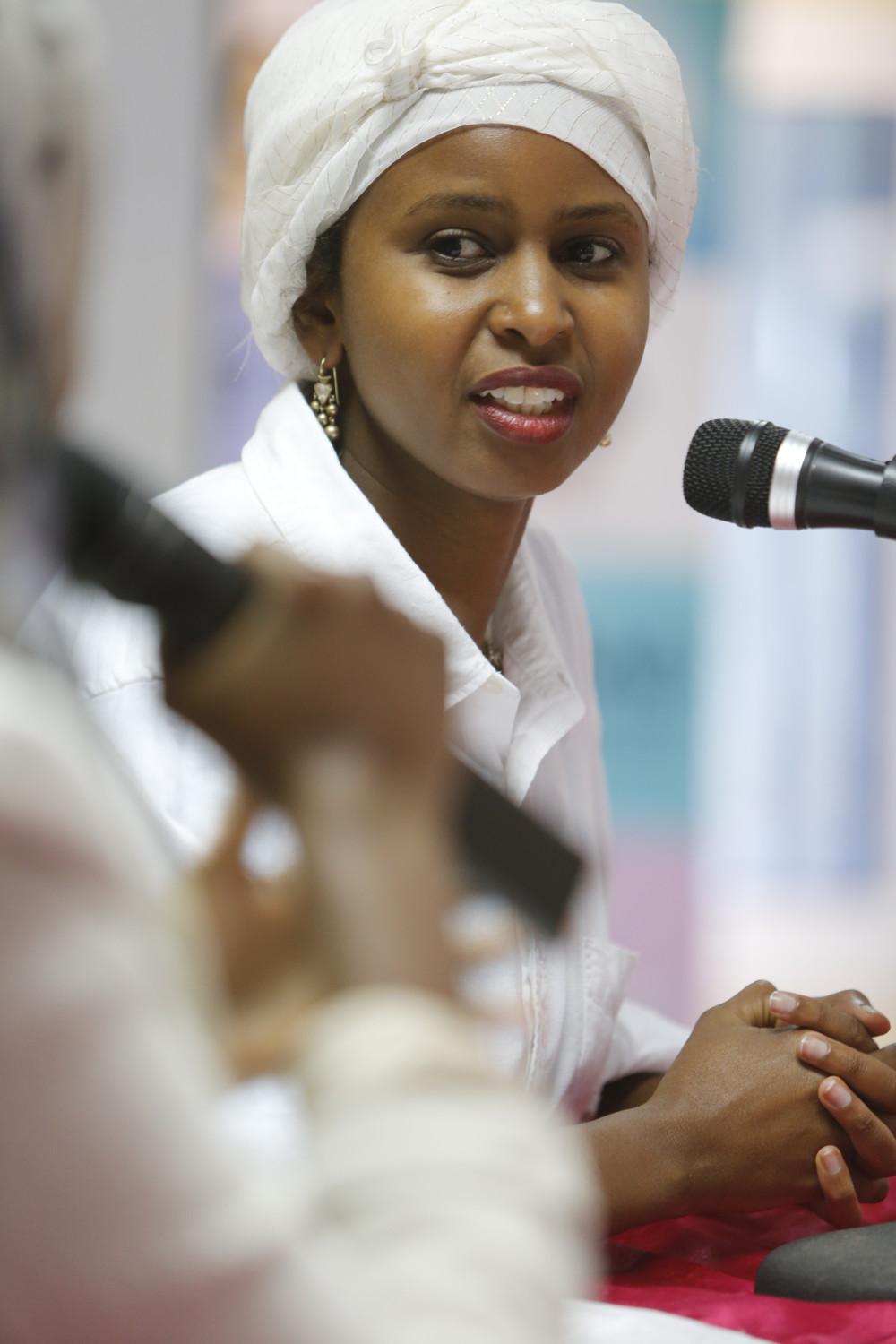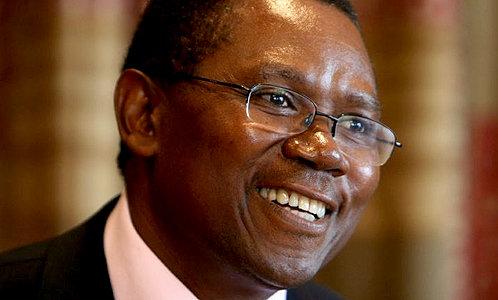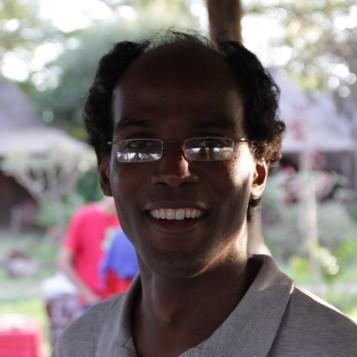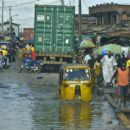Good Books in a Bad Neighbourhood: dispatches from the Hargeisa International Book Festival – By Ismail Einashe
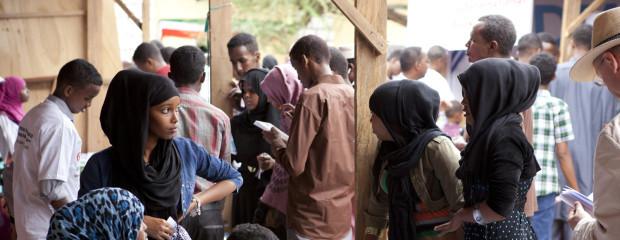
Hargeisa – the dusty capital of Somaliland – is home to the Horn of Africa’s largest literary event. Now in its seventh year, the Hargeisa International Book Fair is a celebration of books, poetry, and the arts. All a remarkable feat for a small unrecognised nation state situated in a bad neighbourhood.
As gun battles rage on the streets of Mogadishu, Hargeisa feels like a world away, a relative oasis of calm. Confusion here is only whipped up by traffic jams, crowds, and an army of goats, mobile phone chatter and incessant construction noise.
Though the scars of the civil war that destroyed the country are still visible, Hargeisa is today an energising and colourful city. Over the past twenty years Somaliland has been building a hybrid democratic state that fuses the ancient and modern – pursuing a process of political and economic reconstruction that has brought security and relative stability since it unilaterally declared independence from Somalia in 1991.
Hargeisa has been transformed over the past few years, with the situation now stable enough for its dispersed population to return – on the streets an eclectic mix of European tongues, various accents from the English speaking world can be heard. In the four years I have been absent from the city things have moved on remarkably fast. A once sleepy town, Hargeisa is now a small sized city home to some 800,000 people. Everywhere you turn you hear the hum of construction.
It is this stability that the Hargeisa International Book Fair has benefited from. Somaliland’s answer to Hay-on-Wye is about more than just books, it shows just how far Somaliland has traveled in its post-civil war reconstruction. And it provides the best antidote to the lazy, cliché-heavy narratives that see Somalia only through the prism of piracy and terrorism.
Highlights from the week-long festival included an opening session by one of Africa’s greatest writers, and oft mentioned candidate for the Nobel Prize in Literature, Nuruddin Farah. He broke with the oral tradition in Somali and began to write in English in the 1960s, his books are all set in Somalia. In his session, he took apart Somali patriarchy, speaking angrily about the cruelty Somali society metes out to its children and women. Farah said he wanted to agitate for change, and he then challenged the audience to reconstruct old views, for Somalis to find a way to live with each other, after war and after violence. A lively debate ensued, with audience members engaging with Farah, even the formidable and fierce activist and medical practitioner, Edna Adan, took part in the discussions.
Hot on the heels of Farah’s session, was a book launch by Nadifa Mohamed, 2013 Granta Best Young British Novelist. Her second novel “˜Orchard of Lost Souls’, based in Hargeisa in 1988, describes the fall of the Said Barre’s brutal regime, through the eyes of three women. Mohamed spoke movingly about her grandmother who lived through the bombings of Hargeisa in 1988 – and she added how her mother’s stories about Hargeisa before the war gave her a “˜complete oral history’ of the city and allowed her to write her book.
An array of international authors, journalist and artist were present – including, veteran journalist, author and New Yorker staff writer, Jon Lee Anderson, journalists and authors Harvey Morris and Michela Wrong, writer Rasna Warah author of “˜War Crimes’ a new book on Somalia, Italian-Somali writer Igiaba Scego, BAFTA nominated film director Yousaf Ali Khan, poet Phyllis Muthoni, author Chuma Nwokolo, Jr. and renowned photographers Angela Fisher and Carol Beckwith.
But, without a doubt the star turn at the festival belonged to an elderly poet, Mohamed Ibrahim Warsame known universally as Hadawri. The raucousness by which he was cheered and greeted by his audience would put any self-respecting One Direction fan to shame. In this still oral culture, poetry has the highest elevation in society; those who perform poetry are revered and treated like rock stars. Hadawri is considered to be its greatest master. Where else in the world do poets get such treatment?
Every year the book fair has a theme and a guest country, this year’s theme was “˜imagination’, on which Edna Adan spoke during the opening of the festival, saying that Somalilanders had used their “˜collective imagination’ over the past twenty years to imagine themselves into a present without guns, and with peace. Her thumping speech was delivered on the grounds of the Redsea Hargeisa Cultural Centre, which opened its door during the festival. With support from international donors, the organisers of the book fair have opened up a cultural space which includes Somaliland’s first art gallery, performance space come theatre built in the style of a traditional Somali hut or “˜bull’ as well as the country’s first public library.
The most remarkable thing, however, was watching young volunteers stack copies of the Somali translation of “˜Animal Farm’, by George Orwell in the library, along with a number of other books published in Somali. It is hugely encouraging to see a revival in publishing in Somali, which only became a written language in 1972.
This year’s guest country was Malawi, which shares an oral tradition with Somaliland, and was also once a British colony. Jack Mapanje, one of Africa’s greatest poets, and former Amnesty and PEN prisoner of conscience led the Malawian delegation that included Mplive Msiska, professor at the University of London, poet Norah Mervis Lungu and president of the Malawian Writers Association, Sambalikagwa “˜Mike’ Mvona.
After a week in Hargeisa Mike was so inspired, and “˜moved’ by what he saw that he’s now promised to launch Malawi’s first ever literary festival in 2015. It is amazing that this little book fair on the edge of the literary world has blazed a path for other African nations to follow.
Ismail Einashe is a journalist and an associate research fellow at the University of Oslo


